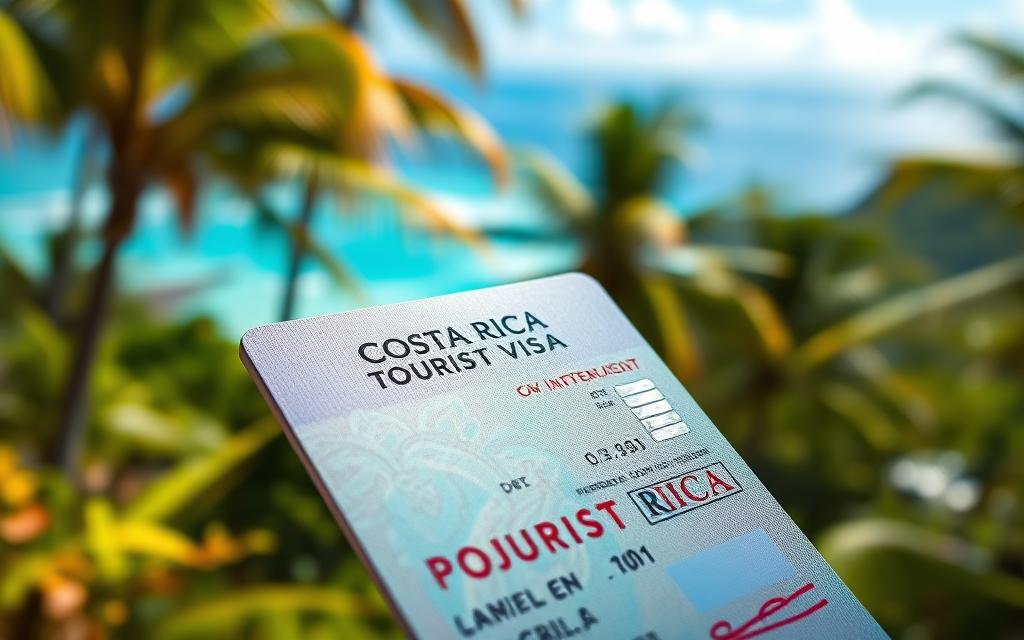Costa Rica Residency: How Long Can I Stay Outside?

Did you know that over 500,000 foreigners have chosen Costa Rica as their new home? This tropical paradise is not just a vacation spot but a haven for those seeking a better quality of life. With its welcoming environment, stable income options, and breathtaking landscapes, it’s no wonder Costa Rica residency is a top choice for individuals and families alike.
Securing residency in Costa Rica opens doors to a world of opportunities. Whether you’re considering the rentista, investment, or permanent pathways, each option offers unique benefits. However, understanding the rules around staying outside the country is crucial to maintaining your status.
We’ll guide you through the essentials of Costa Rica immigration, ensuring you stay compliant while enjoying the flexibility to explore. With expert insights from trusted resources like Jaroscr, you’ll gain clarity on the regulations and make informed decisions. Let’s dive into the details of Costa Rica residency and how it can transform your life.
Understanding Costa Rica Residency Options
Costa Rica offers a variety of residency options tailored to different lifestyles and financial goals. Whether you’re looking for temporary or permanent solutions, understanding these pathways is essential for a smooth transition. Let’s explore the rentista, investment, and permanent residency options to help you make the best choice.
Rentista, Investment, and Permanent Pathways
The rentista residency is ideal for individuals with a steady income stream. It requires a bank deposit of $60,000 and monthly transfers of $2,500 for two years. This option provides flexibility and is perfect for those who don’t want to invest heavily upfront.
For those committed to contributing to the country’s development, the investment residency is a great choice. It requires a one-time investment of at least $150,000 in real estate or eligible projects. This pathway not only grants residency but also supports Costa Rica’s economy.
Permanent residency is the ultimate goal for many. After holding temporary residency for three years, you can apply for permanent status. This option offers long-term stability and access to benefits like the Social Security system.
Benefits of Diverse Residency Types
Each residency type comes with unique advantages. Temporary options like rentista and investment provide flexibility and a straightforward process. Permanent residency, on the other hand, offers long-term security and comprehensive healthcare coverage.
Choosing the right visa is crucial for maintaining your legal status. Temporary residents can be absent for up to one year, while permanent residents can stay outside the country for two years without affecting their status. Proper planning ensures you remain compliant with the rules.
For expert guidance on the residency process, consult trusted resources like Jaroscr. Their insights can help you navigate the requirements and make informed decisions tailored to your needs.
How long can I stay outside Costa Rica with residency?

Understanding the rules around absences is key to maintaining your residency in Costa Rica. Whether you hold temporary or permanent status, knowing the allowed time frames ensures compliance with Costa Rica immigration laws. Let’s break down the specifics to help you plan your travels wisely.
Temporary residents can stay outside the country for up to one year without losing their status. Permanent residents, however, have more flexibility, with a two-year allowance. These time frames are crucial for maintaining your status and avoiding complications.
Monthly requirements also play a role. Temporary residents must ensure they meet financial and documentation requirements during their absence. Permanent residents should keep their records updated to avoid issues when renewing their residency.
Expert advice suggests planning your trips carefully. Keep track of your time abroad and ensure all paperwork is in order. For detailed guidance, consult resources like Jaroscr, which offers insights into the residency process.
Common pitfalls include extended absences without proper documentation or failure to renew residency on time. These mistakes can lead to losing your status. Always stay informed about the latest rica immigration rules to protect your residency.
In summary, managing your time away requires attention to detail. Follow the guidelines, keep your documents updated, and seek professional advice when needed. This approach ensures your residency remains secure while allowing you to explore the world.
Navigating Tourist Visa Limitations and Entry Rules

Tourist visa rules in Costa Rica are designed to balance flexibility and compliance. Whether you’re visiting for a short stay or planning an extended trip, understanding these regulations is essential. Let’s explore the key aspects of entry stamps, authorized stays, and border runs to help you stay on track.
Understanding Entry Stamps and Authorized Stays
Entry stamps determine how long you can stay in Costa Rica as a tourist. For U.S. and Canadian citizens, the maximum stay is typically 180 days. However, some nationalities may receive shorter stamps of 90 or 30 days. Always check your passport stamp upon arrival to confirm your authorized stay period.
Overstaying your visa can lead to fines of $100 per month. To avoid penalties, plan your trip within the allowed time frame. Ensure you have a valid passport, proof of a return ticket, and evidence of financial solvency to meet entry requirements.
Border Runs and Renewal Essentials
Border runs are a common practice for extending your stay in Costa Rica. By leaving the country briefly and re-entering, you can reset your tourist visa. This process is especially useful for those awaiting temporary residency approval or exploring long-term options like permanent residency.
To prepare for a border run, gather essential documents like your passport, proof of onward travel, and financial statements. Double-check entry requirements for the country you’re visiting to ensure a smooth return. Expert services like Jaroscr can guide you through the process and help avoid common mistakes.
Remember, overstaying your visa doesn’t prevent re-entry, but it can complicate future travel plans. Stay informed about the latest rules and seek professional advice when needed. This approach ensures a seamless experience while maintaining compliance with Costa Rica’s immigration laws.
Maintaining Temporary and Permanent Residency Status

Maintaining your residency in Costa Rica requires careful attention to guidelines and renewal processes. Whether you hold temporary or permanent status, following the rules ensures your legal standing remains secure. Let’s explore the steps to keep your residency active and compliant.
Temporary Residency Guidelines and Renewal Process
Temporary residents must renew their status annually. This process involves submitting updated documents, including proof of income, a valid passport, and a clean criminal record. Timely renewal is essential to avoid lapses in your residency.
Documents like a birth certificate with an apostille and a federal police record are mandatory. Our team can assist in gathering and verifying these materials to ensure a smooth renewal process. Missing deadlines or incomplete submissions can lead to complications.
Permanent Residency Requirements and Long-Term Benefits
After three years of temporary residency, you can apply for permanent status. This transition requires proof of continuous legal residency and updated documentation. Permanent residency offers long-term stability, access to healthcare, and full work freedom.
Permanent residents must renew their status every two years. Keeping records updated and staying informed about changing immigration laws is crucial. Expert advice from trusted sources like Jaroscr can guide you through this process.
Common pitfalls include extended absences without proper documentation or failure to renew on time. By following the rules and seeking professional assistance, you can maintain your residency and enjoy the benefits of living in Costa Rica.
Managing Extended Absences and Avoiding Overstay

Planning extended trips while maintaining residency in Costa Rica requires careful attention to absence limits. Whether you hold temporary or permanent status, understanding the rules ensures compliance and protects your legal standing.
Allowance Limits for Absences
Temporary residents can stay outside Costa Rica for up to one year without affecting their status. Permanent residents have more flexibility, with a two-year allowance. Exceeding these limits can jeopardize your residency.
Tracking your days abroad is essential. Use a calendar or app to monitor your time away. This helps you avoid accidental overstays and ensures you remain compliant with Costa Rican immigration laws.
If you’re approaching the absence limit, start the renewal process early. Gather all required documents, such as proof of income and a valid passport. Timely renewal prevents lapses in your residency status.
Exceptions for Medical and Family Reasons
Costa Rican immigration laws allow exceptions for medical emergencies or family-related issues. If you need to stay abroad longer due to these reasons, proper documentation is crucial.
Provide medical certificates, hospital records, or legal documents to support your case. These documents must be translated into Spanish and notarized for official use. Clear evidence increases the chances of approval.
Seeking professional support can simplify the process. Experts like Jaroscr can guide you through the requirements and help you prepare a strong application.
By understanding the rules and planning ahead, you can maintain your residency while managing extended absences. Stay informed and seek assistance when needed to ensure a smooth experience.
Expert Immigration Advice and Trusted Resources
Navigating Costa Rica’s immigration system can be complex, but expert guidance simplifies the process. With over 20 years of experience, professionals like Jaroscr and Quatro Legal provide invaluable support. Their client-focused approach ensures compliance with immigration law and helps avoid common pitfalls.
Insights from Jaroscr and Quatro Legal
Jaroscr specializes in streamlining the residency process. Their team assists with document preparation, ensuring all materials meet legal standards. This service minimizes delays and reduces the risk of fines due to incomplete submissions.
Quatro Legal emphasizes timely renewal and compliance. They guide clients through the intricacies of residency permits, helping them maintain their status without issues. Their expertise is particularly useful for families requiring additional documentation.
Both services offer personalized advice tailored to individual needs. Whether you’re applying for temporary or permanent residency, their insights ensure a smooth experience. Their proven track record speaks to their ability to handle even the most complex cases.
Benefits of Consulting Immigration Experts
Working with trusted professionals offers numerous advantages. They help you understand the nuances of immigration law, ensuring you meet all requirements. This reduces the likelihood of costly mistakes, such as overstaying or failing to renew on time.
Experts also assist with document authentication and translation. These steps are crucial for a successful application. By handling these details, they save you time and stress, allowing you to focus on your transition.
Common legal issues, such as incomplete submissions or missed deadlines, are easily avoided with professional support. Their guidance ensures you remain compliant with Costa Rica’s immigration rules, protecting your residency status.
In summary, expert immigration services like Jaroscr and Quatro Legal are essential for navigating the residency process. Their knowledge and support simplify the journey, helping you achieve your goals with confidence.
Best Practices for a Smooth Residency Process
Ensuring a smooth residency process in Costa Rica requires careful planning and attention to detail. From gathering documents to submitting applications, every step matters. By following expert advice and staying organized, you can avoid common pitfalls and achieve your goals efficiently.
Document Checklists and Application Tips
Start by preparing a comprehensive document checklist. Essential items include a valid passport, birth certificate with an apostille, federal police record, and proof of income. Missing or incomplete documents can delay your application, so double-check everything before submission.
When submitting your application, ensure all signatures, apostilles, and legalizations are in order. Experts recommend using a well-prepared checklist to stay organized. This approach minimizes errors and speeds up the process.
Timely renewals are crucial for maintaining your permit. Temporary residents must renew annually, while permanent residents renew every two years. Keep track of deadlines and start the renewal process early to avoid lapses in your status.
Expert Recommendations for a Stress-Free Experience
Consulting immigration experts can simplify the process. Professionals like CRIE and Quatro Legal provide personalized advice and assist with document preparation. Their expertise ensures compliance with Costa Rica’s immigration laws and reduces the risk of mistakes.
Monitor any changes in the process to stay updated. Immigration rules can evolve, and staying informed helps you adapt quickly. Regularly check official sources or consult experts for the latest updates.
By following these best practices, you can navigate the residency process with confidence. Proper planning, organization, and expert support lead to a smooth and stress-free experience.
Conclusion
Securing and maintaining residency in Costa Rica is a journey that requires careful planning and adherence to rules. Whether you hold temporary or permanent status, understanding the guidelines ensures compliance and protects your legal standing.
Temporary residents must renew their status annually, while permanent residents enjoy more flexibility. Proper documentation, such as proof of income and updated records, is essential for a smooth process. In case of extended absences, tracking your time abroad helps avoid complications.
Expert advice from trusted resources like Jaroscr or Quatro Legal can simplify the process. Their guidance ensures you meet all requirements and avoid common pitfalls. By following the rules and seeking professional support, you can enhance your overall experience in Costa Rica.
Review the best practices and checklists provided to stay informed. Our commitment is to offer continuous support throughout your residency journey. For personalized guidance, contact experts today and take the next step toward a seamless experience.


